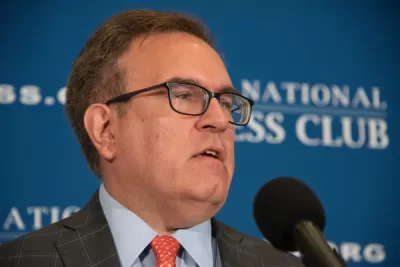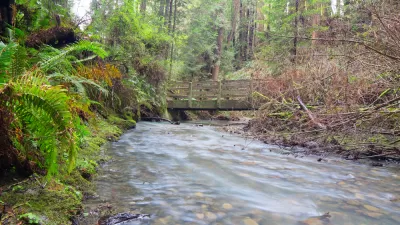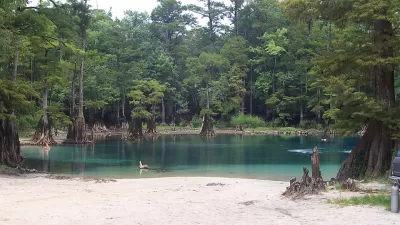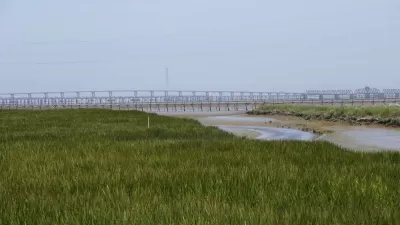The Trump administration is finally delivering on a promise to rescind the Waters of the United States act enacted during the Obama administration to expand the reach of the federal Clean Water Act.

"The Environmental Protection Agency is dramatically reducing federal pollution protections for rivers, streams and wetlands," reports Scott Neuman.
The Obama-era rule was finalized in 2015 after years of controversy, but needed until 2018 to clear a federal judge. "The Obama-era executive action, which broadened the definition of 'waters of the United States,' or WOTUS, applied to about 60% of U.S. waterways," explains Neuman. "It aimed to bring clarity to decades of political and legal debate over which waters should qualify."
As noted by Neuman, the rule is opposed by farmers, builders, mining companies. In 2015, Planetizen noted the opposition of the golf and agriculture industries to WOTUS. According to Neuman, the Environmental Protection Agency's own scientist support the rule—for reasons exemplified by the case of Arizona, as detailed in an article
EPA Administrator Andrew Wheeler announced the rule change today at the National Association of Home Builders International Builders' Show in Las Vegas. The announcements comes a few months after Wheeler announced a repeal of another Obama-era clean water rule that limited the amount of pollutants that can be released into streams.
FULL STORY: Trump Administration Is Rolling Back Obama-Era Protections For Smaller Waterways

Maui's Vacation Rental Debate Turns Ugly
Verbal attacks, misinformation campaigns and fistfights plague a high-stakes debate to convert thousands of vacation rentals into long-term housing.

Planetizen Federal Action Tracker
A weekly monitor of how Trump’s orders and actions are impacting planners and planning in America.

Chicago’s Ghost Rails
Just beneath the surface of the modern city lie the remnants of its expansive early 20th-century streetcar system.

Bend, Oregon Zoning Reforms Prioritize Small-Scale Housing
The city altered its zoning code to allow multi-family housing and eliminated parking mandates citywide.

Amtrak Cutting Jobs, Funding to High-Speed Rail
The agency plans to cut 10 percent of its workforce and has confirmed it will not fund new high-speed rail projects.

LA Denies Basic Services to Unhoused Residents
The city has repeatedly failed to respond to requests for trash pickup at encampment sites, and eliminated a program that provided mobile showers and toilets.
Urban Design for Planners 1: Software Tools
This six-course series explores essential urban design concepts using open source software and equips planners with the tools they need to participate fully in the urban design process.
Planning for Universal Design
Learn the tools for implementing Universal Design in planning regulations.
planning NEXT
Appalachian Highlands Housing Partners
Mpact (founded as Rail~Volution)
City of Camden Redevelopment Agency
City of Astoria
City of Portland
City of Laramie





























